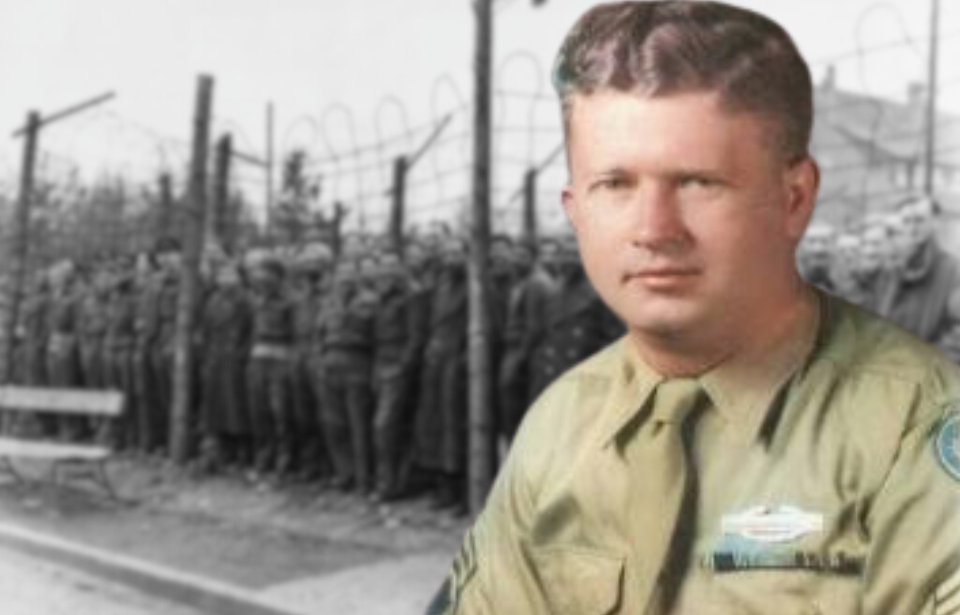A number of Americans risked their lives to save those in trouble during the Second World War, but few were as brave as Master Sgt. Roddie Edmonds. While imprisoned at a German prisoner of war (POW) camp, the noncomissioned officer defiantly ignored the orders of a German commandant, subsequently saving the lives of hundreds of his Jewish-American comrades.
Roddie Edmonds’ early life and enlistment in the US Army
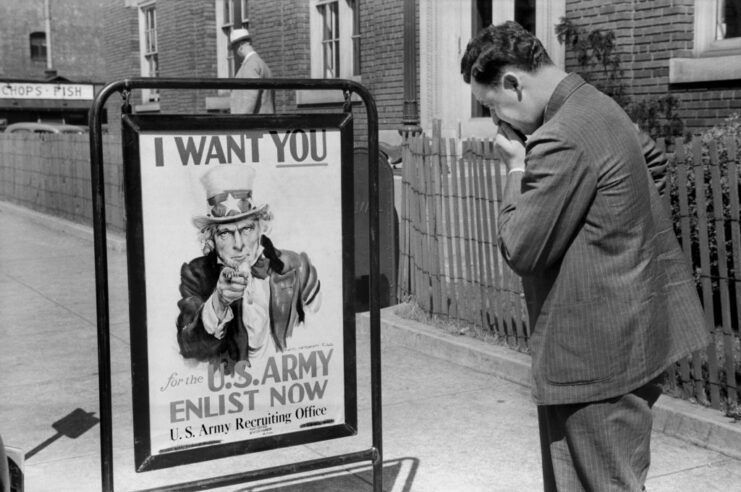
Roddie Edmonds was born on August 20, 1919, in South Knoxville, Tennessee. Little is known about his childhood, other than he grew up with three brothers, graduated from Knoxville High in 1938, and attended a Methodist church in his area.
Edmonds enlisted in the US Army just under nine months before the Japanese attack on Pearl Harbor in December 1941. He was 22 years old, and joined up at Fort Oglethorpe, Georgia.
Deployed to Europe
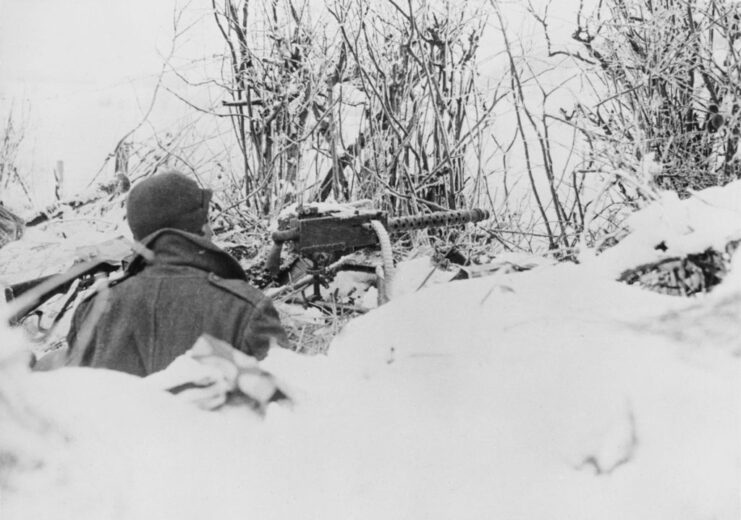
As the Second World War continued to batter the European and Pacific theaters, Roddie Edmonds was deployed to Europe with the 422nd Infantry Regiment, 106th Infantry Division. Despite being the highest-ranking noncommisisoned officer (NCO) in his regiment, he didn’t throw his rank in other soldiers’ faces.
“He did not throw his rank around,” fellow veteran Lester J. Tanner told Yad Vashem. “You knew he knew his stuff, and he got across to you without being arrogant or inconsiderate. I admired him for his command… We were in combat on the front lines for only a short period, but it was clear that Roddie Edmonds was a man of great courage who led his men with the same capacity we had come to know in the States.”
In December 1944, just five days before the Germans launched the Battle of the Bulge, Edmonds arrived in the European Theater. He fought valiantly alongside his comrades in the 106th, but soon found himself surrounded by enemy troops.
Becoming a prisoner of war (POW)
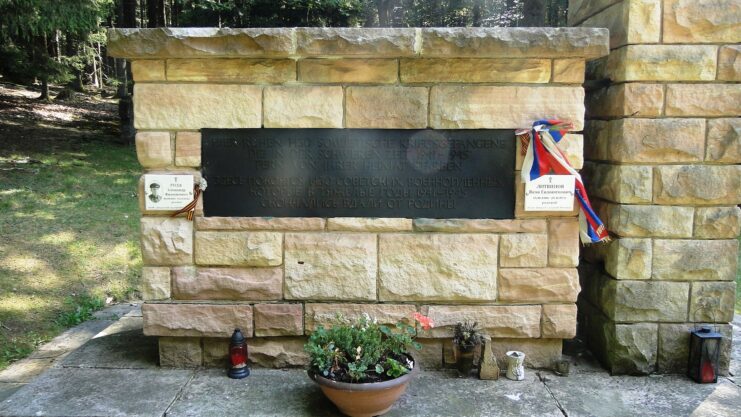
Without any realistic method of escape, the majority of the troops Roddie Edmonds fought alongside surrendered to the Germans. He, however, held out for a few more days, before conceding to the enemy on December 21, 1994.
Following his capture, Edmonds and the others were sent to Stalag IX-B, a German prisoner of war camp located near Bad Orb, in Hesse. The journey was difficult, with the men of the 422nd Infantry Regiment forced to march 50 km to Gerolstein, Germany, after which they were loaded into boxcars with little-to-no food or water. They were then forced to ride the rails for seven days.
After some time at Stalag IX-B, the men were split into three groups: enlisted men, officers and noncommissioned officers. The NCOs were then sent to another camp, Stalag IX-A, near Ziegenhain, Germany.
Roddie Edmonds stood up for his Jewish comrades
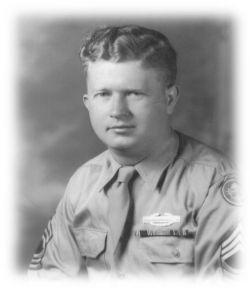
Roddie Edmonds became the senior ranking noncommissioned officer at Stalag IX-A and was put in charge of the camp’s 1,275 American prisoners of war.
On January 27, 1945, the camp’s commandant ordered Edmonds to tell only those who identified as Jewish-American to present themselves at the next day’s roll call, so they could be separated from the general population. Knowing the dangers this posed to his Jewish comrades, he did the opposite and ordered that all the POWs line up outside of their barracks.
Angered, the camp commandant raised his pistol to Edmonds’ head and demanded, under threat of death, that he identify the Jewish soldiers. Keeping his cool, the American master sergeant said, “We are all Jews,” and informed the German that he’d be prosecuted for war crimes under the Geneva Convention should he hurt any of the men; they were only required to provide their name, serial number and rank, not their religion.
Realizing he’d been bested, the camp commandant lowered his weapon. It’s believed this act of defiance saved the lives of between 200 and 300 Jewish soldiers.
Surviving the war
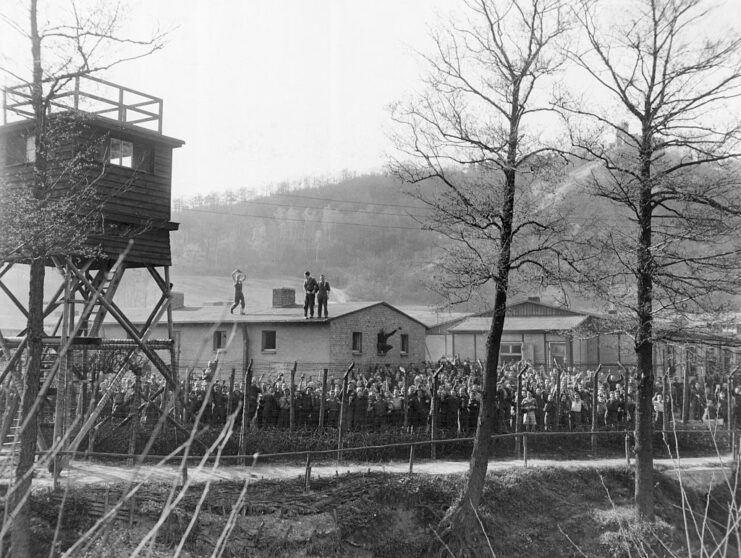
After 100 days of being imprisoned by the Germans, Roddie Edmonds returned home to the United States, never discussing what happened at Stalag IX-B with anyone, not even his family.
He was called up to once again serve with the US Army upon the outbreak of the Korean War, after which he worked in mobile home and cable sales and at The Knoxville Journal, a local newspaper. Edmonds thrice married, and died on August 8, 1985. He was laid to rest at Berry Highland Memorial Cemetery in Knoxville, having never divulged his bravery during World War II.
Edmonds’ actions may have never been publicly known if it hadn’t been for his son, Rev. Chris Edmonds, who knew his father deserved recognition.
Roddie Edmonds was honored by Yad Vashem

After being given his father’s wartime diaries, Roddie Edmonds’ son came across entries about his time at Stalag IX-A. Wanting to learn more, Chris did some digging and located several of the veterans who’d served alongside the elder Edmonds. This ultimately led to the involvement of Yad Vashem, to whom the retired servicemen were willing to share aspects of master sergeant’s bravery.
Edmonds was recognized as being “Righteous Among the Nations,” Israel’s highest honor for non-Jewish individuals who went out of their way to save people during the Holocaust, in February 2015. Just under a year later, on January 27, 2016, a ceremony was held at the Israeli Embassy in Washington, DC. Then-US President Barack Obama was present.
Of the 25,000 individuals who’ve been named Righteous Among the Nations, Edmonds is only the fifth American. As well, he is the only one to have been an active US service member during the Second World War.
Push to award Roddie Edmonds the Congressional Gold Medal
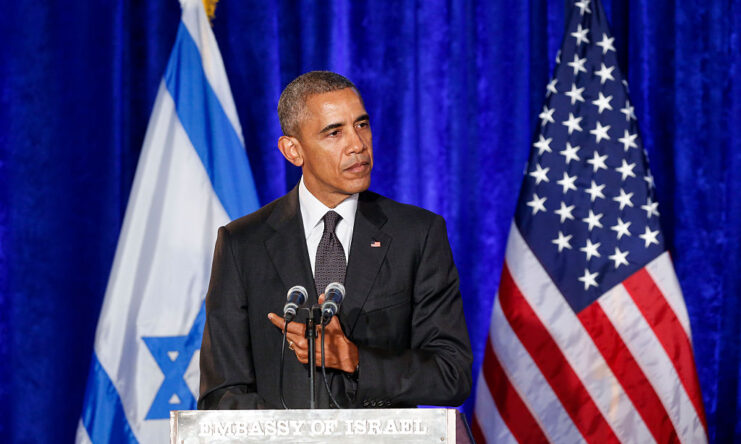
While happy his father was honored by Yad Vashem, Chris is pushing for more recognition from the United States. He’d initially sought for Roddie Edmonds to be awarded the Medal of Honor, but this was denied, as his actions didn’t occur in combat.
More from us: Witold Pilecki Risked His Life for the Polish Resistance By Voluntarily Being Imprisoned At Auschwitz
There has since been a push to posthumously award Edmonds with the Congressional Gold Medal, the highest civilian award handed out by the US Congress. This has had the backing of many, with the Master Sergeant Roddie Edmonds Congressional Gold Medal Act being introduced in the House on April 24, 2023.
There has been no notable action since this date.
